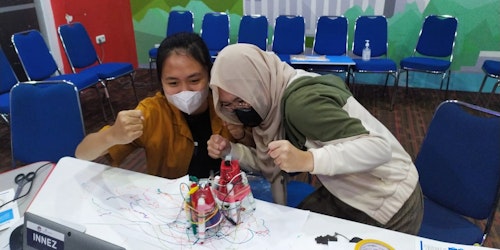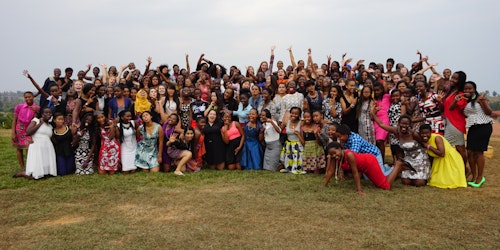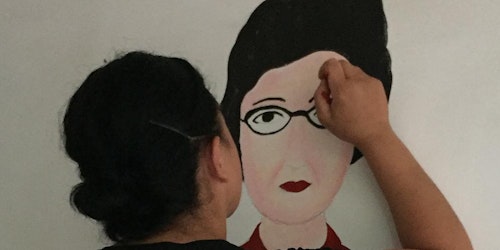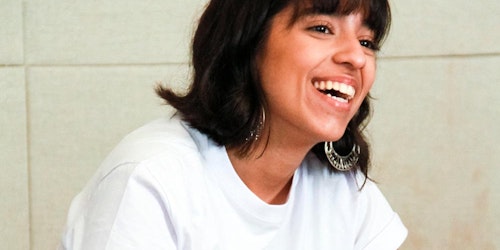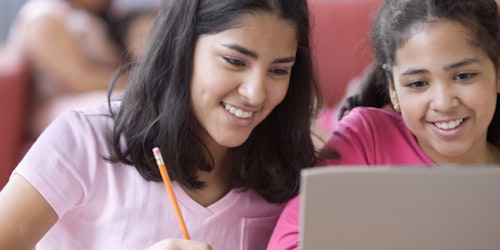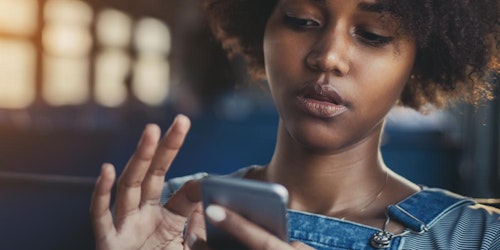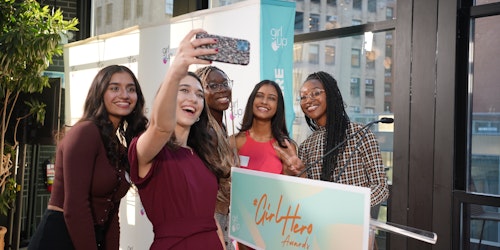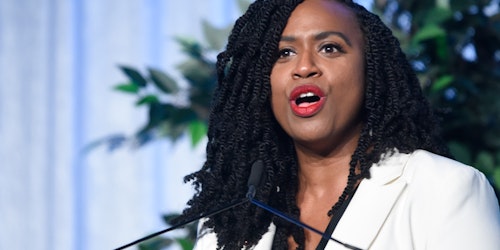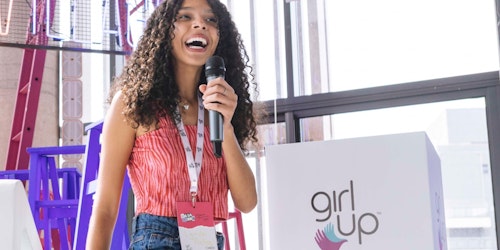I was 13 years old when an unknown blood disease invaded my life. Suddenly, I was no longer a normal teen: Summers on the beach were exchanged for months-long treatments and pills. Confused and terrified, I felt weak and incomplete. One day, I received a gift from my abuelito (my grandfather): An old astronomy book by physicist Stephen Hawking. Since then, I have found strength in understanding the nature of the world. Instead of thinking about the medicine in my bloodstream, I was fascinated by the infinity of the universe as presented by Carl Sagan in his book, “A Pale Blue Dot”:
“Astronomy is a humbling and character-imprinting experience. Perhaps there is no better demonstration of the folly of human vanity than that distant image of our tiny world. In my opinion, it underscores our responsibility that we should treat each other better, and preserve and love our pale blue dot, the only home we know.”
It is often said that positive action is a reaction to negative circumstances. Generally, we are driven to take action after being personally affected by a negative event. In my case, just as I was not expecting a disease to change my life, I realized that I cannot predict how long I will be in this tiny pale blue dot. That’s when I discovered a responsibility to invest that time–short or long–into preserving my world. Science, technology, engineering and mathematics (STEM) became the tools I found to achieve this goal.
As I became more conscious of my surroundings, I noticed a part of my world that required immediate action. My home country of Colombia has long suffered the consequences of violence. Almost six decades of conflict has transformed the nation into a place where thinking differently could lead to a death sentence. More than 260,000 people have lost their lives and an estimated 120,000 people are still missing. To me, what is worse is that women have been conceived as weapons of war by the armed actors, stripped of their dignity and life through sexual violence, kidnapping, torture, and murder.
Historically, war has been fueled by drug trafficking. Farmers living in poverty will often resort to growing illicit crops–like the coca plant often used to make cocaine–in order to survive. These crops are then illegally traded and used as a fund source by the armed groups, actively bringing terror and death to my country. Farmers then find themselves in a cycle of violence from which they cannot escape…or can they?
Rebellious farmers have found that growing substitution crops, like cacao, is a profitable way to avoid producing illicit crops. However, a new disease arrived in their lives: Moniliasis or frosty pod rot. This pathogen could destroy 90 percent of the cacao harvest if not treated in time. It was one of the worst threats against substitution crops, and thus against the hope of peace. As an urge to stop moniliasis grew inside of me, I eventually found my superpower to do so: Artificial intelligence (AI).
Attending an all-girls school with no programming classes, self-teaching became my biggest ally. I was dealing both with my own disease and with the desire of building peace. Yet through AI, I was no longer weak. I was strong and powerful. In my first research project, I used AI and data extracted from mammograms for early detection of breast cancer. From that, I discovered that AI was a powerful tool, and particularly for the early detection of diseases. And if I could use AI to detect human diseases, why couldn’t I use it to detect crop diseases like moniliasis? Technology could serve as a tool for reconciliation and peace.
However, one piece of the puzzle was still not clear for me: Girls in my school–and in many schools around the country–did not know how to code. In fact, only 17% of employees in the Colombian IT sector are women. At the same time, women have been one of the populations most affected by war. This opened my eyes to see that gender equality is at the center of solutions, that peace will never be achieved until women and girls are equally represented in STEM.
The goal of my initial cacao project has grown since its start. Now not only do I want to use AI to build peace, but I also want other girls to find their AI superpowers too–to feel empowered to become agents of change in their communities. That is the reason why I founded ASOFI–The Women’s Innovation Association For Rural Development–which connects the talents of young women in STEM for peace building and rural development in Colombia. I am convinced that girls not only represent more than a half of the population, but we also represent the hope of a better tomorrow. Therefore we must link female talent in STEM–particularly in AI–with peace building.
My journey has just begun yet, as I look back, I realize that I was never broken. AI did not complete me, but it did give me a tool to pursue a purpose. Now I dream that other girls–maybe also experiencing hardships like–will find in AI the same power that I once needed.
Laura G. is a high school senior in Bogotá, Colombia. She is also a young researcher and aspiring computer scientist, passionate about exploring the intersection between Artificial Intelligence (AI), health, equality and peacebuilding. As a young activist, she has been recognized as a Global Teen Leader by the We Are Family Foundation and joined Girl Up as one of the 25 global Teen Advisors. Laura has investigated the applications of AI in multiple fields including agriculture and health, and has been a research intern at the Stanford Compression Forum. She further hopes to integrate AI with molecular biology to study how to extend longevity and combat aging, while she dreams of empowering the participation of women and girls into STEM for social good, particularly for peacebuilding, constructive dialogue and rural development in Colombia and Latin America.
The views and opinions expressed in this blog are the writer’s own.
